Vitruvius Without Text (2022) – Review
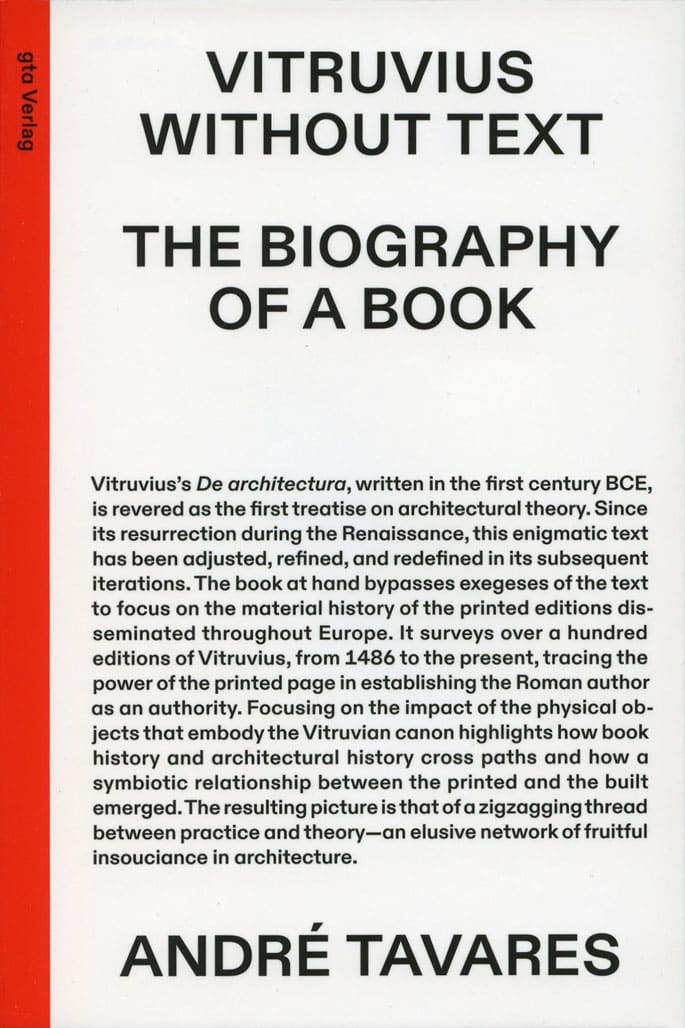
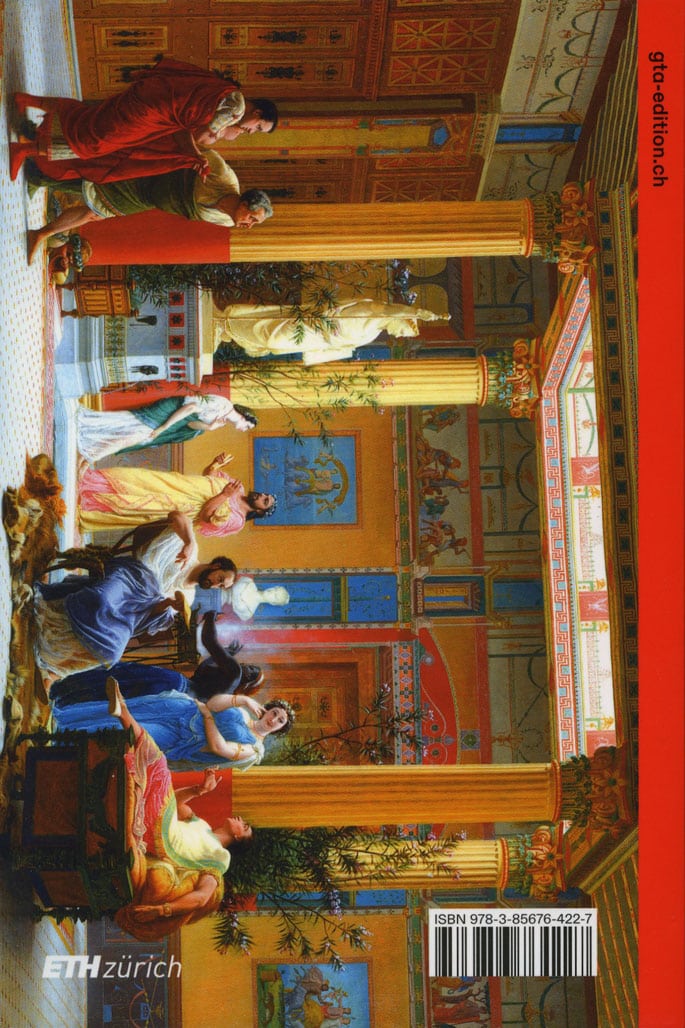
This provocative book raises many questions about books themselves, including through the way in which it is published. As the first in a gta Verlag series that works the grain of open access by presenting a combined digital and analogue publication simultaneously, it is an interesting choice. The printed book, small enough to fit in a pocket, presents a conventional linear route through a series of dense, fact-soaked sections, each of which takes a different form. The journey begins on the front cover, with an extended blurb (on the back is a vibrant, mysterious reproduction of a Boulanger painting that gives the dense object presence), through a prologue that introduces the intentions, the methods, and the problems of the project, right to its heart.
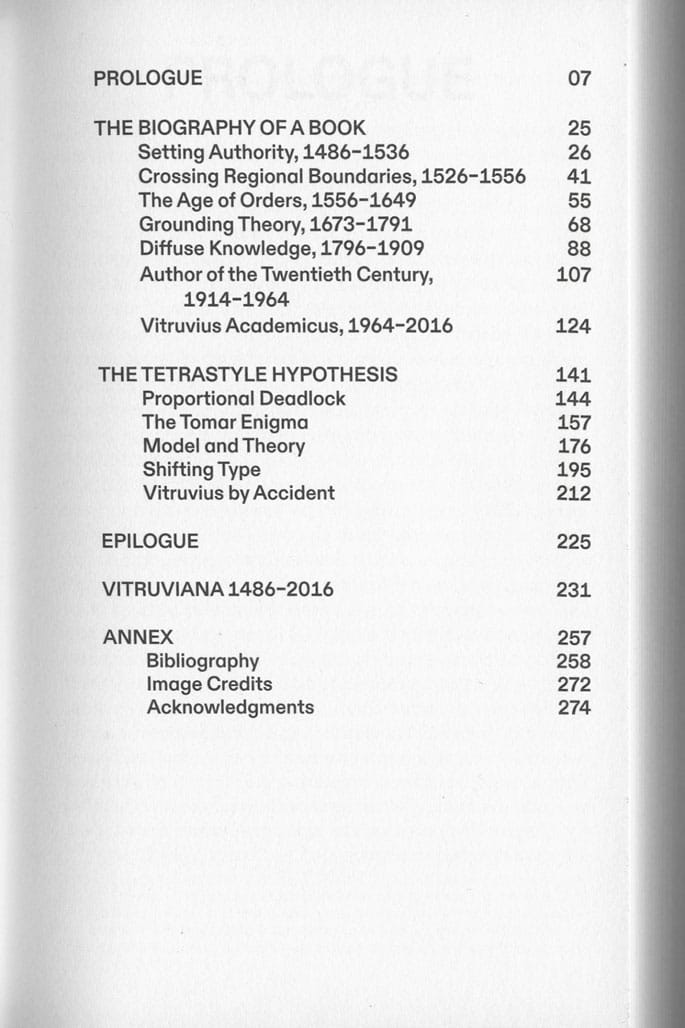
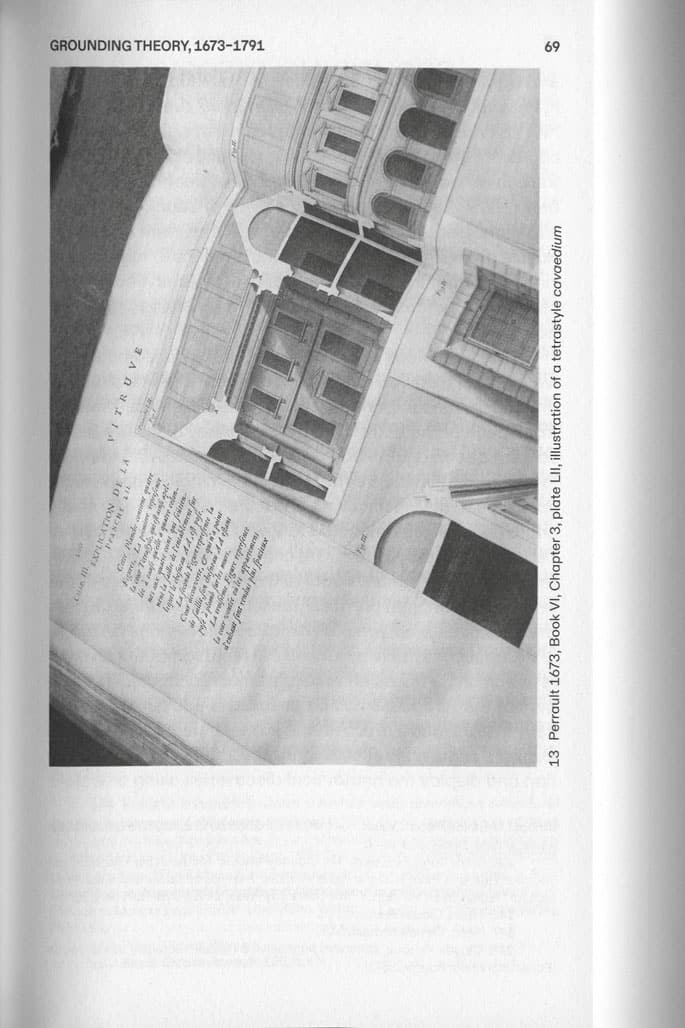
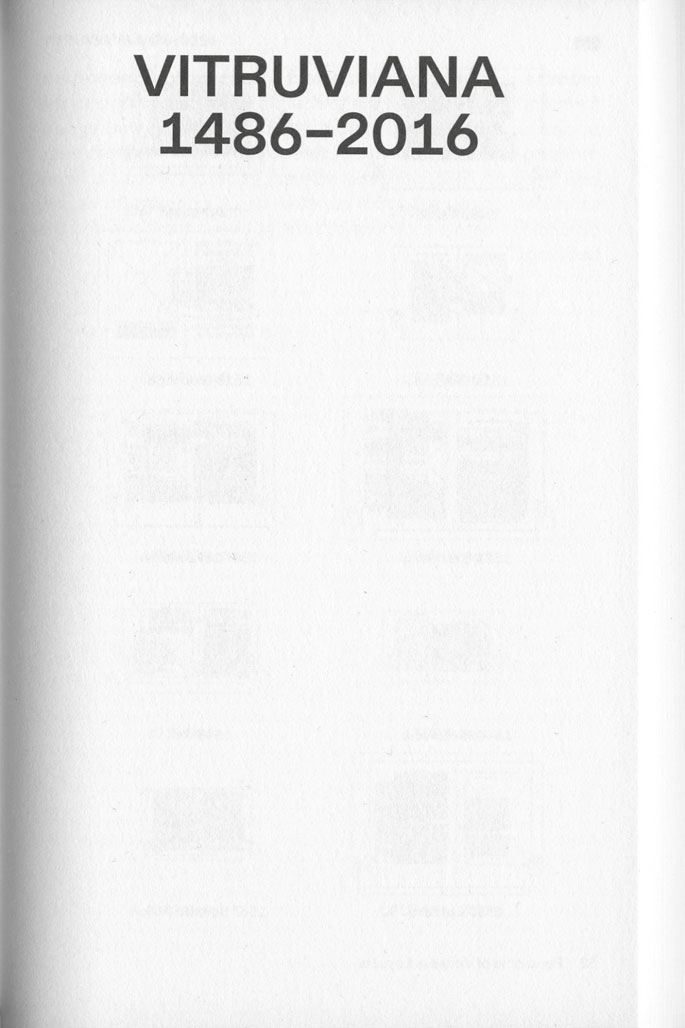
This is ‘The Biography of a Book’, a chronological seven-chaptered narrative of the printed editions, or should we say versions, of the ‘De Architectura’ manuscript by Vitruvius, reproduced from its original and then in a genealogy of hand-written codices until the first imprint in 1486. Which is where the story begins. Not with the content of the treatise per se, but with the political, technological and intellectual contexts of books in relation to architecture as evident in the way the Vitruvian treatise is made manifest over time. The repetitive rhythm of the sequence, from ‘Setting Authority 1486–1536’ to ‘Vitruvius Academicus 1964–2016’, is simultaneously fascinating and boring. Nuances of format, illustration, notation, opinion and its provenance, are identified and analysed, carefully footnoted and related to each other. A body of organised information accrues that is shored up by subsequent sections. ‘The Tetrastyle Hypothesis’ plays the role of a case study through which a specific aspect as theoretical idea is analysed in relation to architectural production as a historically enacted process. A short conclusion in the form of an epilogue is followed by ‘Vitruviana 1486–2016’. This last section before a detailed bibliography includes a page of drawings of different editions that compares their relative sizes and layouts; a comprehensive chronology of all the versions of ‘De Architectura’ that have been produced in the world, from Italy to India, between 1486 and 2016; and seven maps corresponding with the seven parts of the biography that illustrate its diaspora.
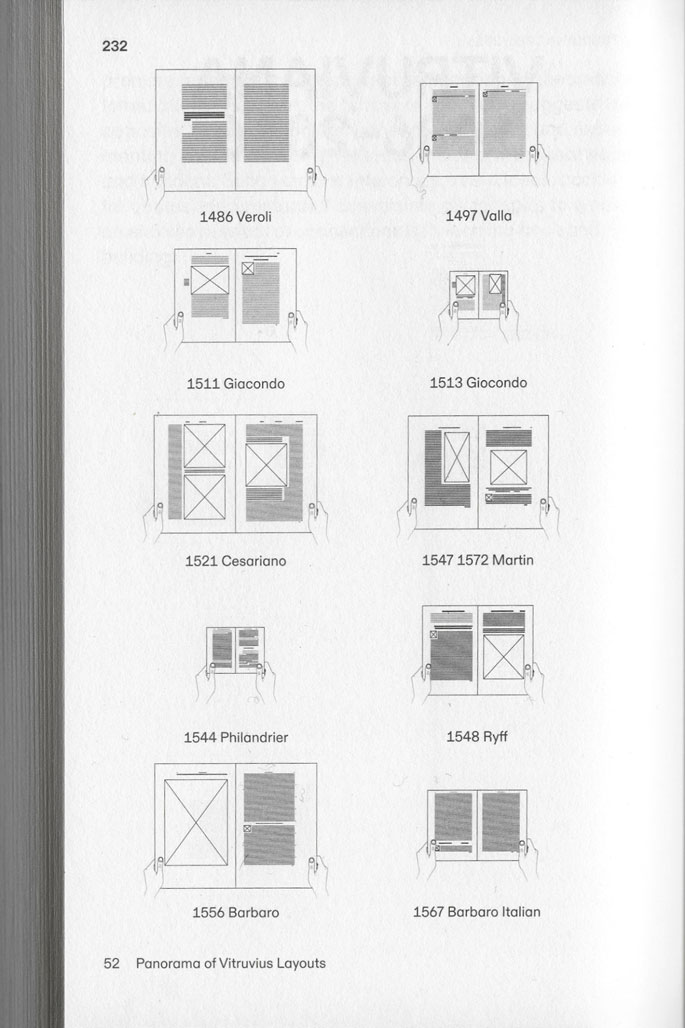
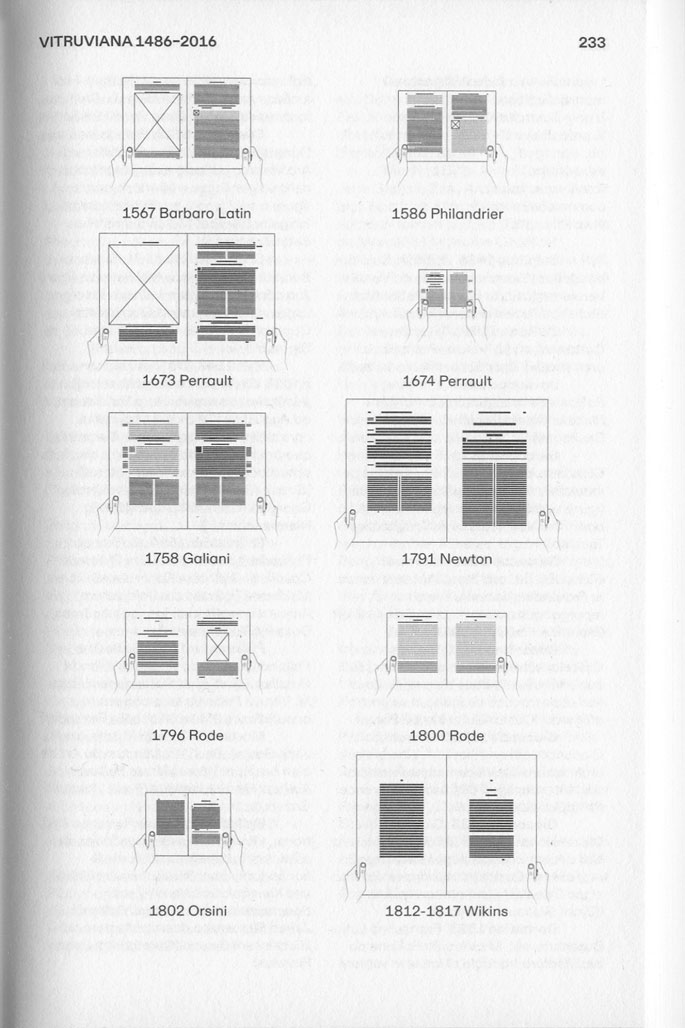
The deep geekiness of this survey is both scholarly and a parody of the scholarly. In taking a sacrosanct subject and subjecting the thing itself, the ‘book forms as material objects rather than as texts’ as André Tavares, the author, puts it, ‘to an intrusive scrutiny in such detail illuminates the vulnerability of well-guarded assumptions of what constitutes knowledge and the mechanisms for its reproduction.’ In addition, this book wilfully disrupts the operative role of architectural theory as represented by Vitruvius and defined by the keeper of the editions, Werner Oechslin, in whose library the author carried out his research: ‘Theory–in the great tradition of pertinent theorists from Vitruvius and Alberti to Semper and Le Corbusier–is a theory of practice. Its special task of explaining specific approaches (Latin: demonstrare atque explicare) is fulfilled in design.’
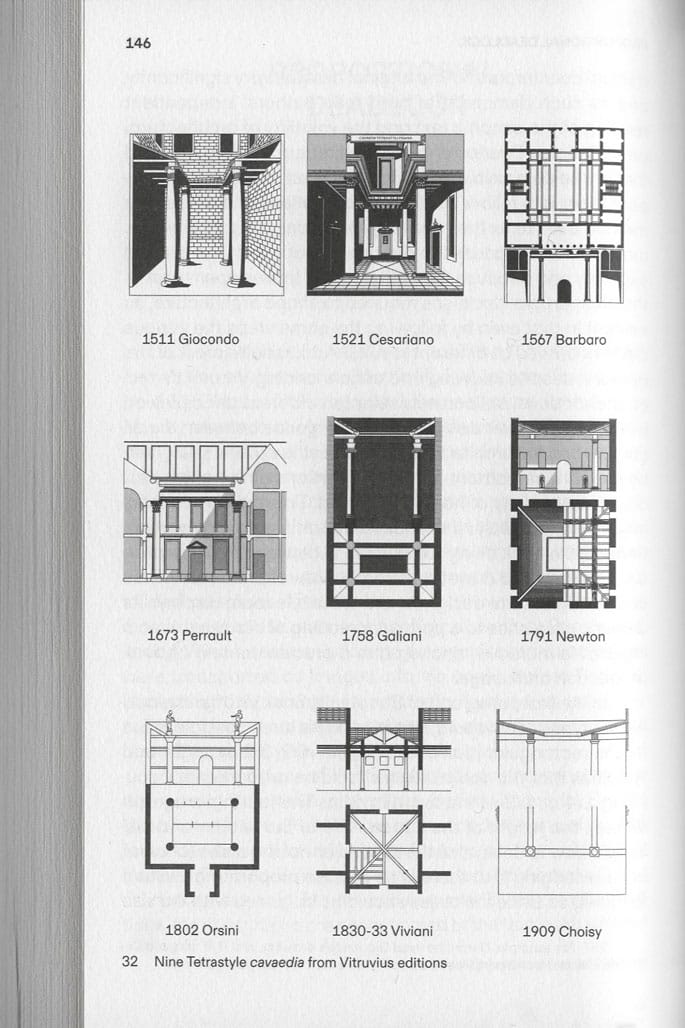
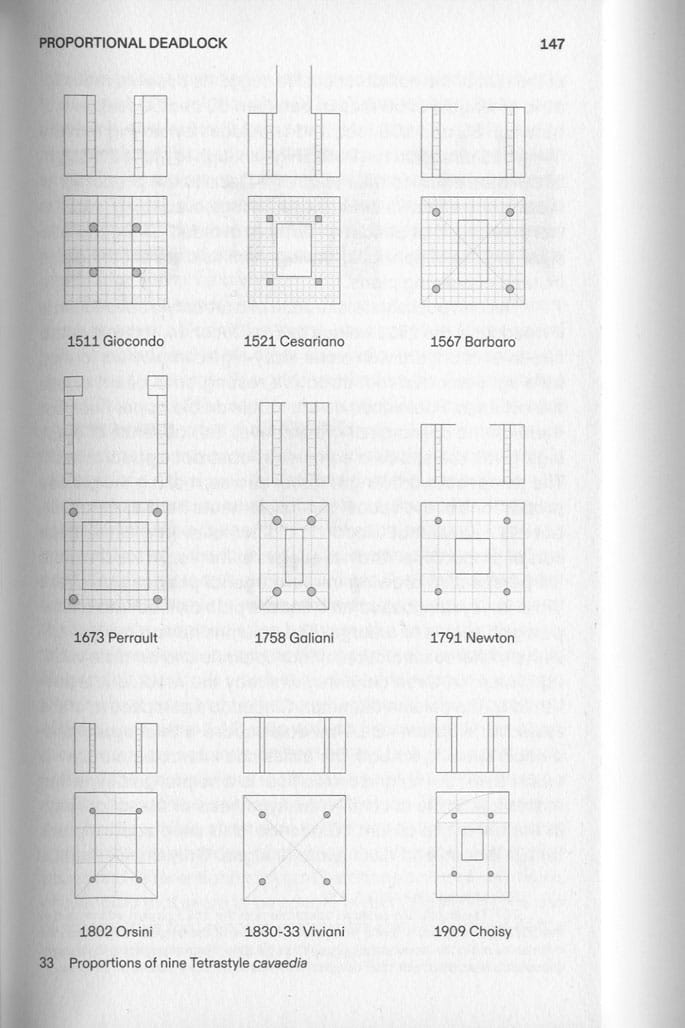
That Tavares doesn’t mind the fact that his conclusions aren’t crystalline, but rather ‘a foggy picture, a chimera, that suggests that the discourse embodied in the books does not run parallel to architectural practice’ is enhanced by the structure of the online version of his book. Where the printed edition is linear, the digital version allows a different relationship between the parts. While the forward action of turning the page is enacted through a vertical scrolling action, this overlaps the sequences and can be navigated via a pop-out contents page. Images, which are eaten by the fold in the small book, emerge sharp and clear in a column on the left as the relevant text appears on the screen. The footnotes benefit from a similar mechanism in a column on the right. The full potential of a user-led digital environment is not exploited here, no bookmarking or sharing is possible, but perhaps that would be a step too far away from the special subject of this intriguing publication.
Vitruvius Without Text, the Biography of a Book by André Tavares is published by gta Verlag. A copy of the book can read online here.
Helen Thomas is Reviews Editor at Drawing Matter.
